"No matter where you go - Remember the Hung Kings' Commemoration Day on the tenth of March". In the minds of every Vietnamese person, the Hung Kings' Commemoration Day has long been a symbol of spiritual culture and belief, a convergence point of the great solidarity spirit of the Vietnamese ethnic community. On this occasion, every Vietnamese person, whether in the homeland or far away from the motherland, turns with a sincere heart, expressing gratitude to the ancestors' merits, demonstrating the traditional morality of "when drinking water, remember its source".

The worship of Hung Kings affirms that Vietnamese people have a common and distinct origin, creating a strong spiritual belief, creating a tradition of solidarity, love and mutual support. Worship of Hung Kings has become a cultural and religious symbol connecting the past with the present, fostering family, village and national affection.
The Hung King worship or Hung King's death anniversary is held on the 10th day of the third lunar month every year, at the Hung Temple historical relic site (a relic complex including the Upper Temple, Middle Temple, Lower Temple, Au Co Temple, Tomb...) on Nghia Linh mountain, Viet Tri city.
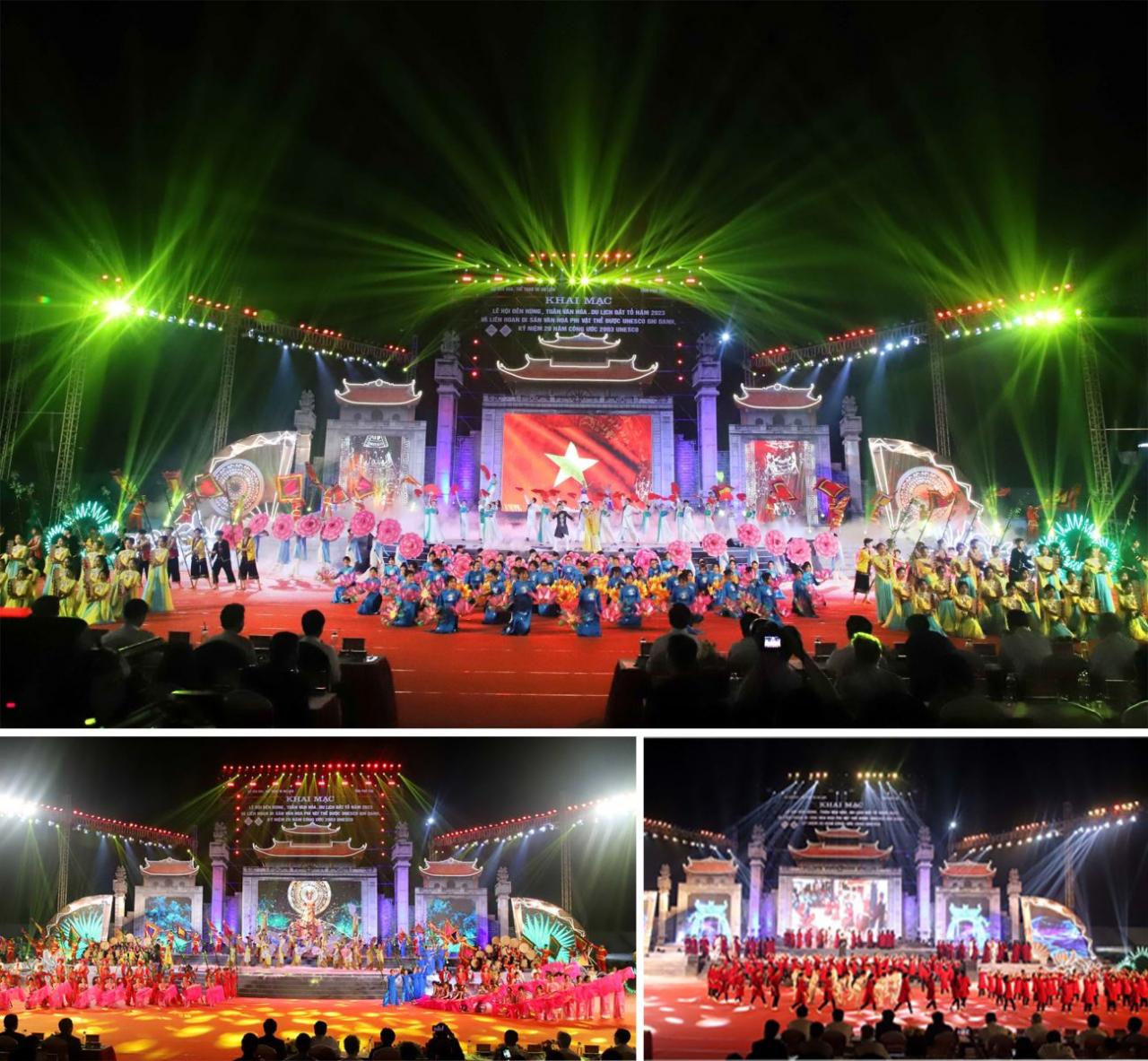
The worship of Hung Kings - the worship of the common ancestor of the whole country, perhaps only the Vietnamese people in the world today. That is the typical and unique cultural identity of the Vietnamese people and also a typical cultural heritage of humanity. The worship of Hung Kings in the historical process has always been an endogenous factor of national culture, contributing to fostering pride and creating a spirit of solidarity, patriotism and love for the nation. "Humans have ancestors, have ancestors, like trees have roots, like rivers have sources".
Through previous research data, it is shown that the worship of Hung Kings originated from the worship of natural gods and mountain gods. According to legend, the Upper Temple on Nghia Linh Mountain was where the Hung Kings used to go to perform rituals to worship heaven and earth, worship the rice god, pray for favorable weather, prosperity and happiness for the people. Until the end of the 19th century and before the restoration of the Upper Temple in 1917, the worship of gods here was still a mixture of worship of mountain gods, rice gods and worship of Hung Kings. According to the legend and stele in the temple, An Duong Vuong Thuc Phan was grateful that Hung Vuong had given up the throne, so after Hung Vuong died, An Duong Vuong went up to Nghia Linh Mountain to build a temple to worship him.
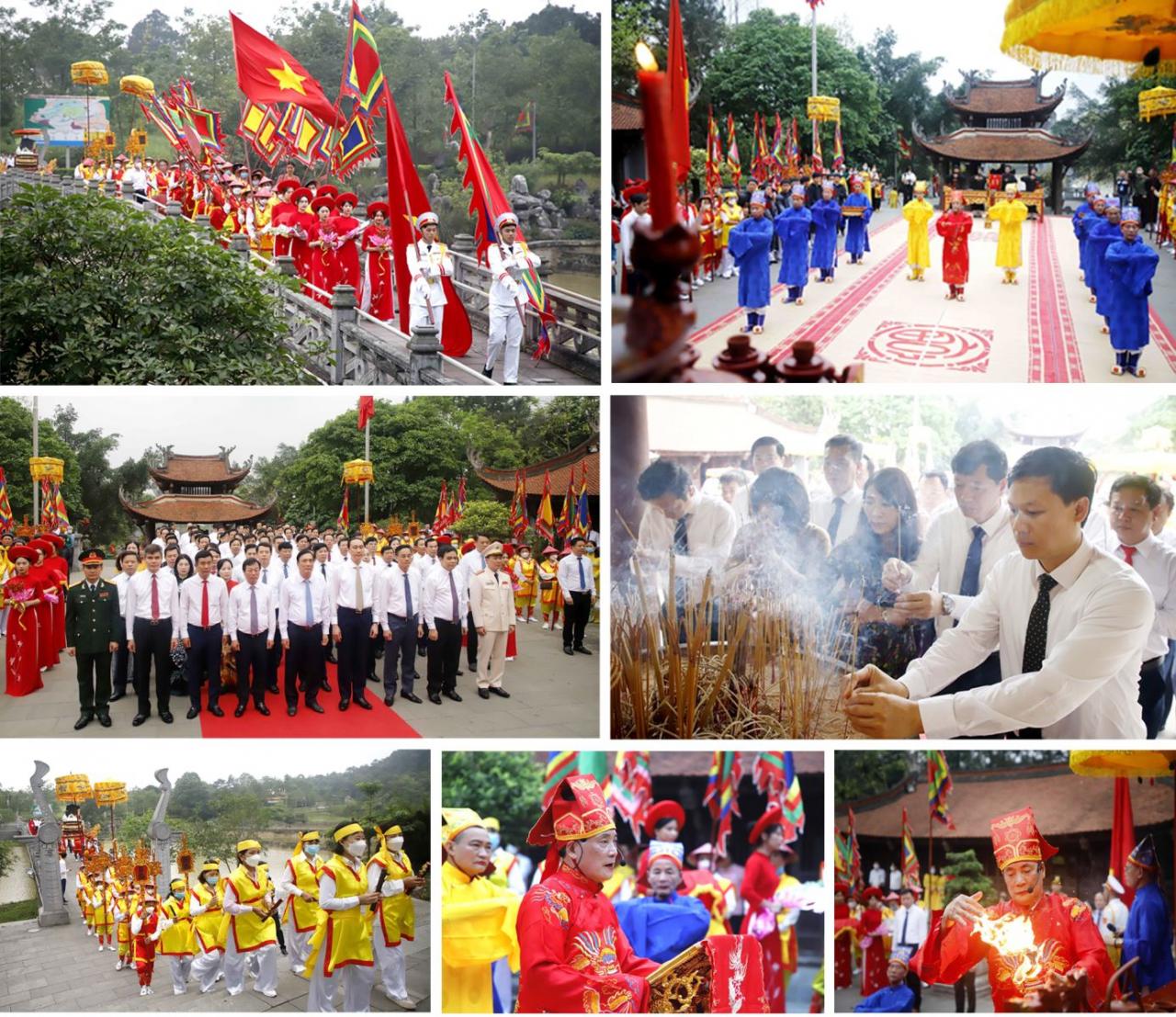
With a sincere belief in gratitude for merit, for thousands of years, generations of Vietnamese people have created, practiced, cultivated and passed down the worship of Hung Kings.
Since the Later Le Dynasty, the worship of the Hung Kings was performed by the local people themselves. From the Hong Duc period of King Le Thanh Tong, the Hung Temple festival was brought to the national level, "internationally granted", and the ceremony was presided over by the head of the town on behalf of the court. During the Nguyen Dynasty, King Minh Mang ordered the Hung Kings' tablets from the Hung Temple to be worshiped at the Lich Dai De Vuong Temple in Hue , while still granting royal titles at the Hung Temple for local people to worship. During the second year of Khai Dinh (1917), the 10th day of the 3rd lunar month was officially taken as the main holiday, with solemn rituals held.
Continuing the tradition of his ancestors, especially the tradition of "remembering the source of water when drinking", right after the successful revolution, President Ho Chi Minh signed Decree No. 22/SL-CTN on February 18, 1946, giving civil servants a day off on the 10th day of the third lunar month every year to participate in organizing activities to commemorate the Hung Kings - towards the origin of the nation. And he visited Hung Temple twice, the first time on September 19, 1954 and the second time on August 19, 1962. During the second visit, he had the immortal saying: "The Hung Kings had the merit of building the country - Uncle and nephew, we must work together to protect the country". He also reminded: "We must pay attention to protecting, planting more flowers and trees so that Hung Temple will become more and more solemn and beautiful, becoming a historical park for future generations to visit".
Since 1995, the Hung Kings' Commemoration Day has been recorded in the Secretariat's notice as a major holiday of the year.
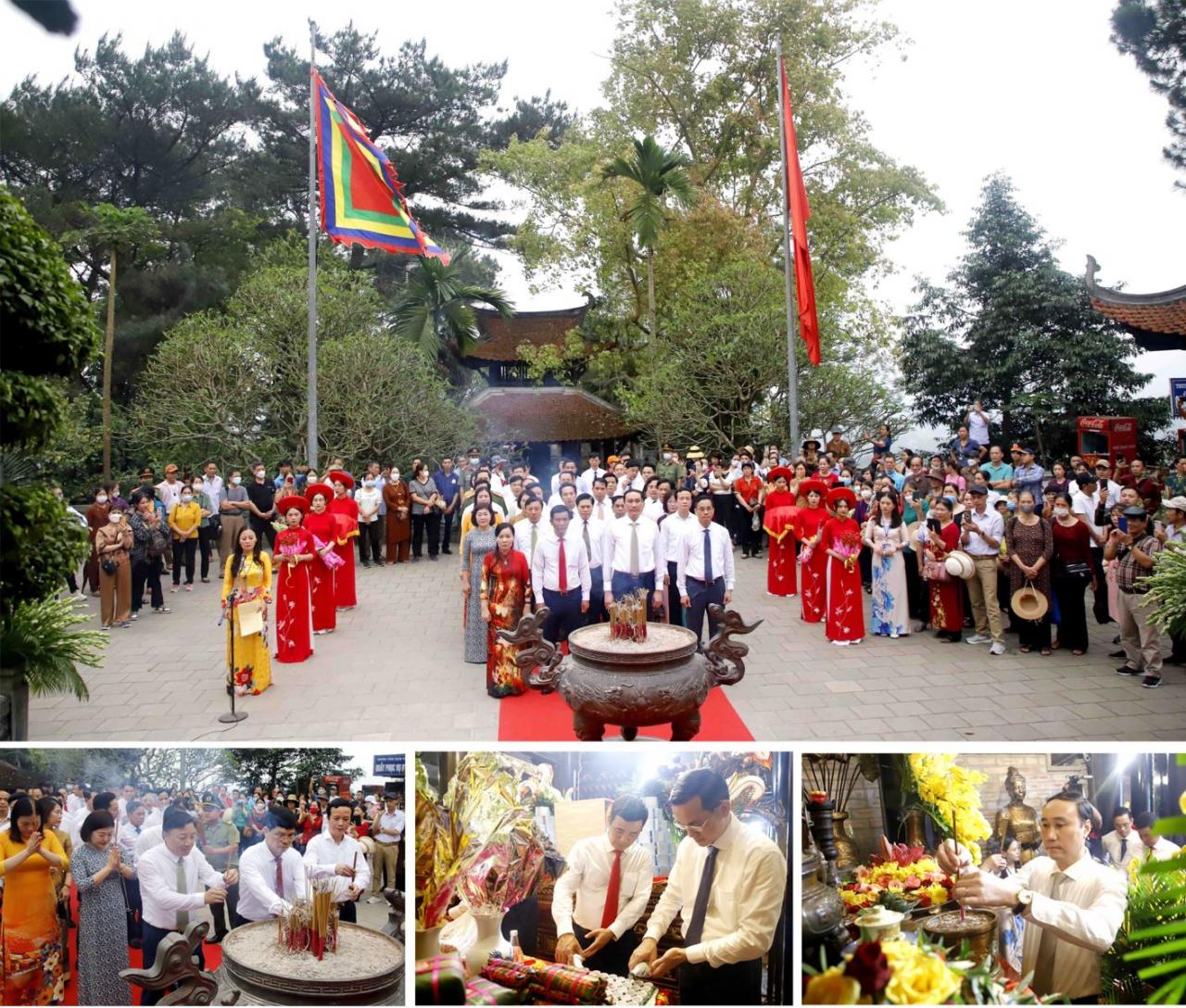
Then, on April 2, 2007, the National Assembly approved the amendment and supplement to Article 73 of the Labor Law to allow employees to take time off work and receive full pay on the Hung Kings' Commemoration Day. Since then, the 10th day of the third lunar month every year has become an important holiday for all people, a national holiday with national cultural significance.
And on December 6, 2012, the United Nations Educational, Scientific and Cultural Organization (UNESCO) recognized the “Hung King Worship in Phu Tho”, a symbol of the spirit of great solidarity and the traditional morality of “remembering the source of water when drinking” of the Vietnamese people as a representative intangible cultural heritage of humanity. According to the assessment of UNESCO experts, the “Hung King Worship” has met the most important of the five criteria, which are: the heritage has outstanding global value, encouraging the common consciousness of all nations in promoting that value.
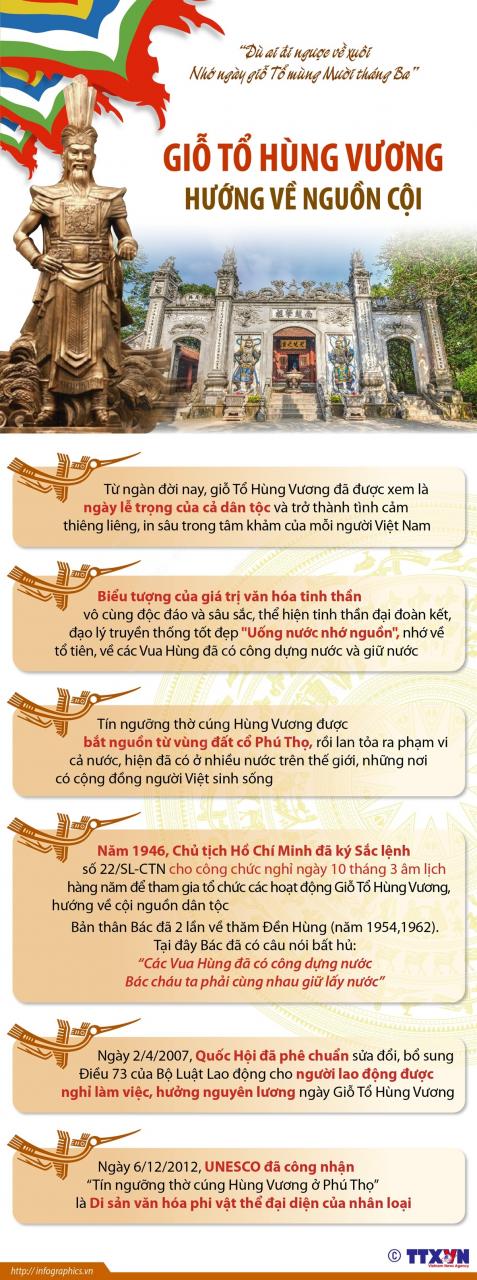

The worship of Hung Kings originated from the ancient land of Phu Tho, then spread throughout the country, especially the provinces of the Northern Delta, the Central region and to the South following the footsteps of the Vietnamese people. Now, worship of Hung Kings is present in many countries around the world, where there are Vietnamese communities.
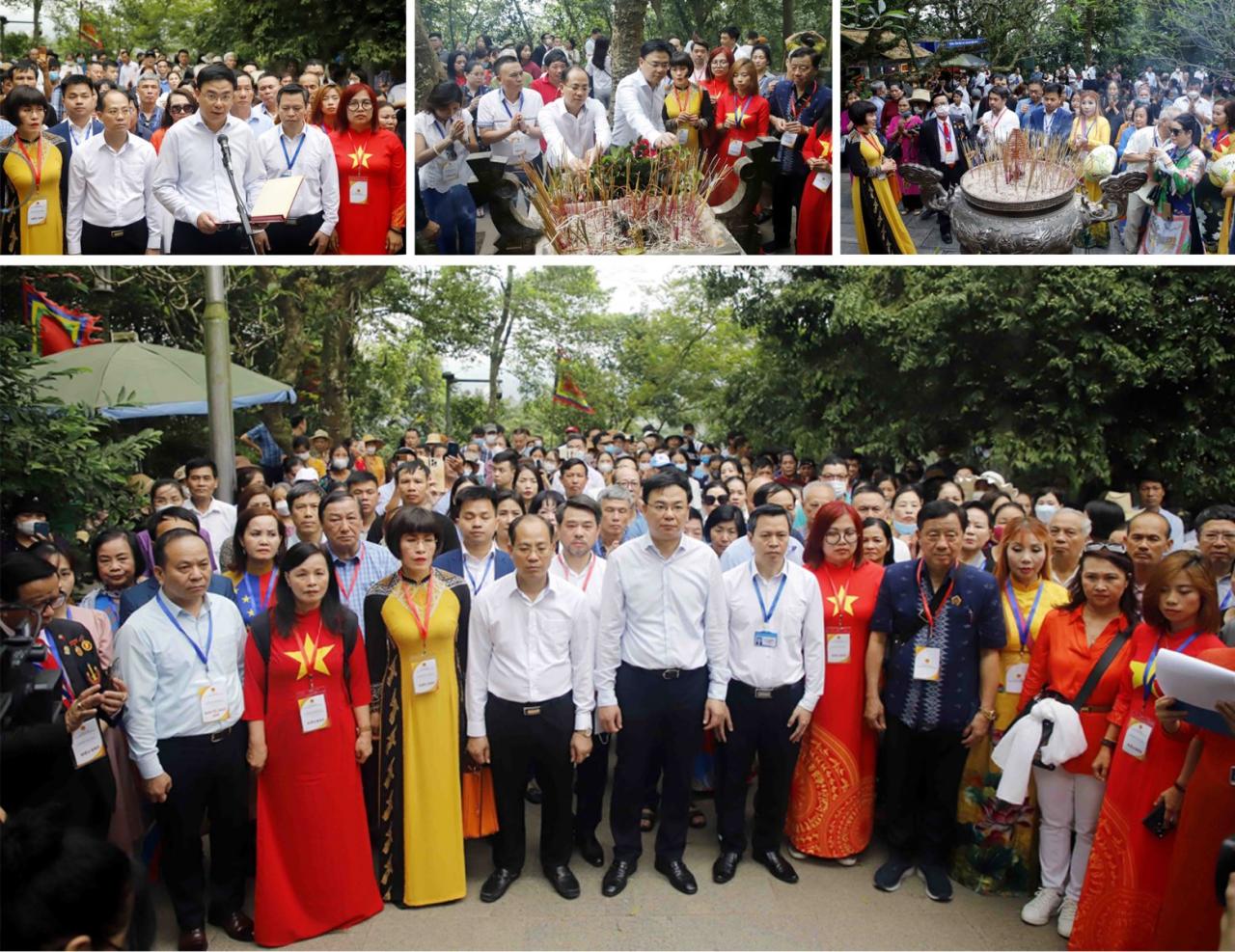
Currently, the whole country has more than 1,410 relics worshiping Hung Kings and related to the Hung King era, spread across regions, from Hanoi, Hai Phong, Bac Ninh, Thai Nguyen, Lang Son, Nghe An, Thua Thien - Hue, Lam Dong, Binh Phuoc, Khanh Hoa, Dong Nai, Ho Chi Minh City, Ben Tre, Kien Giang, Can Tho... Therefore, the Hung King's death anniversary has become a festival for people across the country with many programs, cultural activities, traditional arts, folk cultural activities. In Phu Tho province alone, there are more than 340 relics associated with the worship of Hung Kings.
Along with compatriots in the country, for many years now, Vietnamese people living abroad have always sincerely turned to their roots. However, not everyone has the honor to attend the anniversary of the death of their ancestors in their homeland. Therefore, organizing the anniversary of the death of the Hung Kings abroad so that people can have the opportunity to turn to their national roots is an extremely necessary need.
That is why the idea of organizing the Global Vietnamese National Ancestor Day quickly received the response of society with the desire to become a day of great national unity and honoring Vietnamese values, so that Vietnamese people across 5 continents do not forget their ancestors, together turn to their roots. And the Hung King's death anniversary and worship will follow the children of Vietnam to spread across 5 continents, bringing traditional cultural values, customs, cuisine, especially spiritual culture, ancestor worship... to the community, contributing to be a bridge between overseas Vietnamese and compatriots in the country.
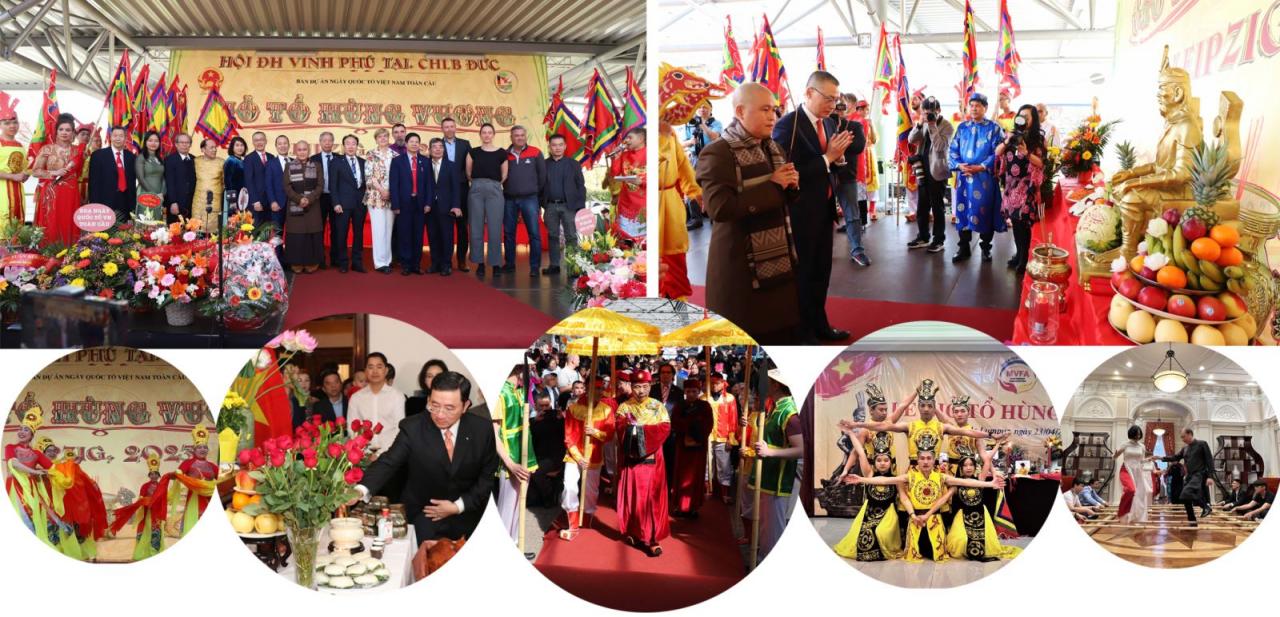
The Global Vietnamese Ancestor Day - Ancestor Commemoration and Honoring the Descendants of the Hung Kings Globally 2023 will also be held in person and online with the participation of overseas Vietnamese from nearly 20 countries at 1:00 p.m. (Vietnam time), April 29, 2023 (ie March 10 of the lunar calendar). The program is maintained and organized annually by the Global Vietnamese Ancestor Day Project Board according to a common scenario (from 2015 to present), aiming to create a common cultural day - connecting Vietnamese people around the world and international friends, aiming to build a solid cultural bridge of friendship, building sincere friendship between Vietnam and international friends.


Thus, it can be seen that the process of formation and development of the Hung King worship is a process of progression from low to high and is continuously built up through many generations; it is a symbol of inspiration and creation of great national unity, and the pride of the Vietnamese people throughout its history.
For the people, the pilgrimage to Hung Temple is the desire and aspiration of many generations of Vietnamese people. This is considered a pilgrimage back to the historical roots. From the legend of the "hundred-egg sac", all Vietnamese people recognize each other as brothers, sharing the same origin, the same Lac Hong bloodline and the same National Ancestor, the Hung Kings.

From a community and social perspective, the Hung King worship is understood as a collective memory, a people's remembrance of the nation's past, with a high sense of community cohesion. In other words, the Hung King worship of the Vietnamese people is a link connecting the past, present and future.
Educating about ancestors and national pride is also the premise and basis for forming compassion and community ethics, reminding each individual to act according to social norms and strengthening belief in the witness, blessing and protection of the gods, ancestors and national heroes.
Through that, it arouses national pride, patriotism, and gratitude for the contributions to building the country, which are recognized and worshiped by the people. In terms of society, it is also a spiritual thread connecting the community, a symbol of national unity.
Throughout the historical development process, ancestor worship, typically the Hung King worship, has undergone certain changes to adapt to the national culture in each specific historical period, and has even been supplemented and completed by the ideologies of other beliefs and religions to become a national belief, making positive valuable contributions and becoming an Intangible Cultural Heritage of Humanity.

Deep in the hearts of Vietnamese people, we always believe that: We are people born from the same womb (compatriots) as descendants of Lac Hong - the people of the whole country are brothers and sisters of the same family. From the legend of Mother Au Co giving birth to a hundred eggs, half followed her father to the sea, half followed her mother to the forest, has aroused the consciousness of the nation, the meaning of compatriots and united us into a great solidarity.
Sharing the same ancestral origin and the Hung Kings' Commemoration Day is a special spiritual source that unites the Vietnamese people into a great unity, creating a strong and everlasting Vietnamese vitality. Each Hung Kings' Commemoration Day is a special moment for each person with Vietnamese blood to turn to the sacred Hung Temple, the place to worship the ancestors' merits, the symbol of the national spirit.
According to Associate Professor, Dr. Bui Hoai Son, every nation in the world has its own origin, but the Vietnamese people are different from other nations in that they worship the same ancestor - King Hung. This is what creates a unique identity of Vietnam, recognized by UNESCO. For Vietnam, the Hung King belief is a symbol of the nation. We always consider him as the ancestor of the nation, the factor that has united the community in a territorial space to become a community with strength, existence, development and maintaining cultural identity.
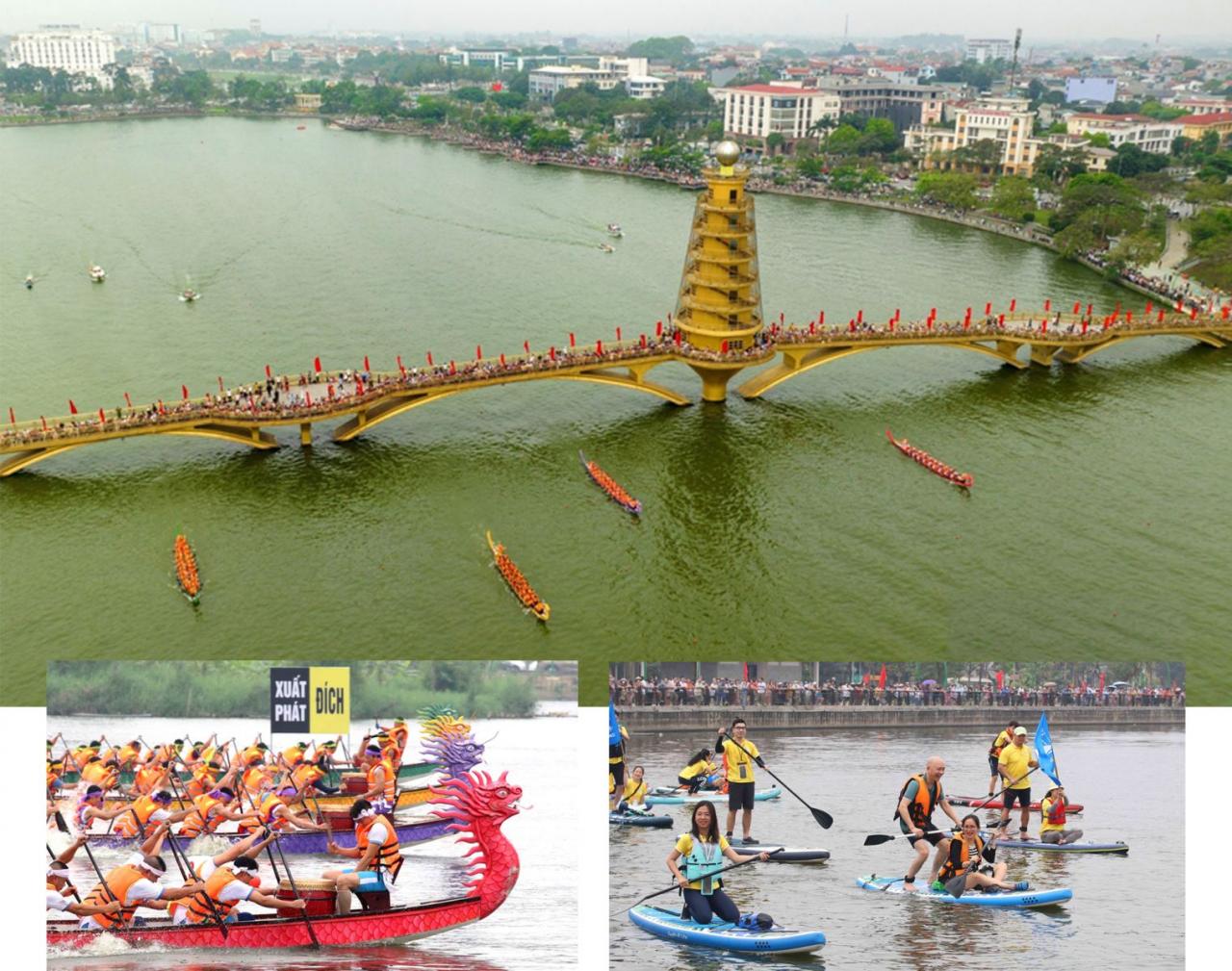
According to historian Duong Trung Quoc, the concept of the Hung King has been recorded in history books for hundreds of years and the initial religious activities were closely associated with villages, especially in the Northern midland region: "On the Hung King's death anniversary in 1946, the year of Binh Ty, for the first time the State organized it at the same location as the Indochina school, the master of ceremonies was President Ho Chi Minh. I can say that for the first time in history, a head of state, the head of state, stood up to preside over the ceremony".
"On the same day, the Minister of the Interior - a very prestigious person among the people, Mr. Huynh Thuc Khang, led a government delegation to the Upper Temple in Phu Tho to perform a ceremony to inform heaven and earth, to inform ancestors, to inform King Hung that the country was independent and people said that the delegation brought a map of Vietnam with the three regions of Central - South - North connected together to form an independent Vietnam. We clearly see that, at that time, the symbol of King Hung was not only the symbol of a distant ancestor but it had become a strength of the community" - Historian Duong Trung Quoc shared.
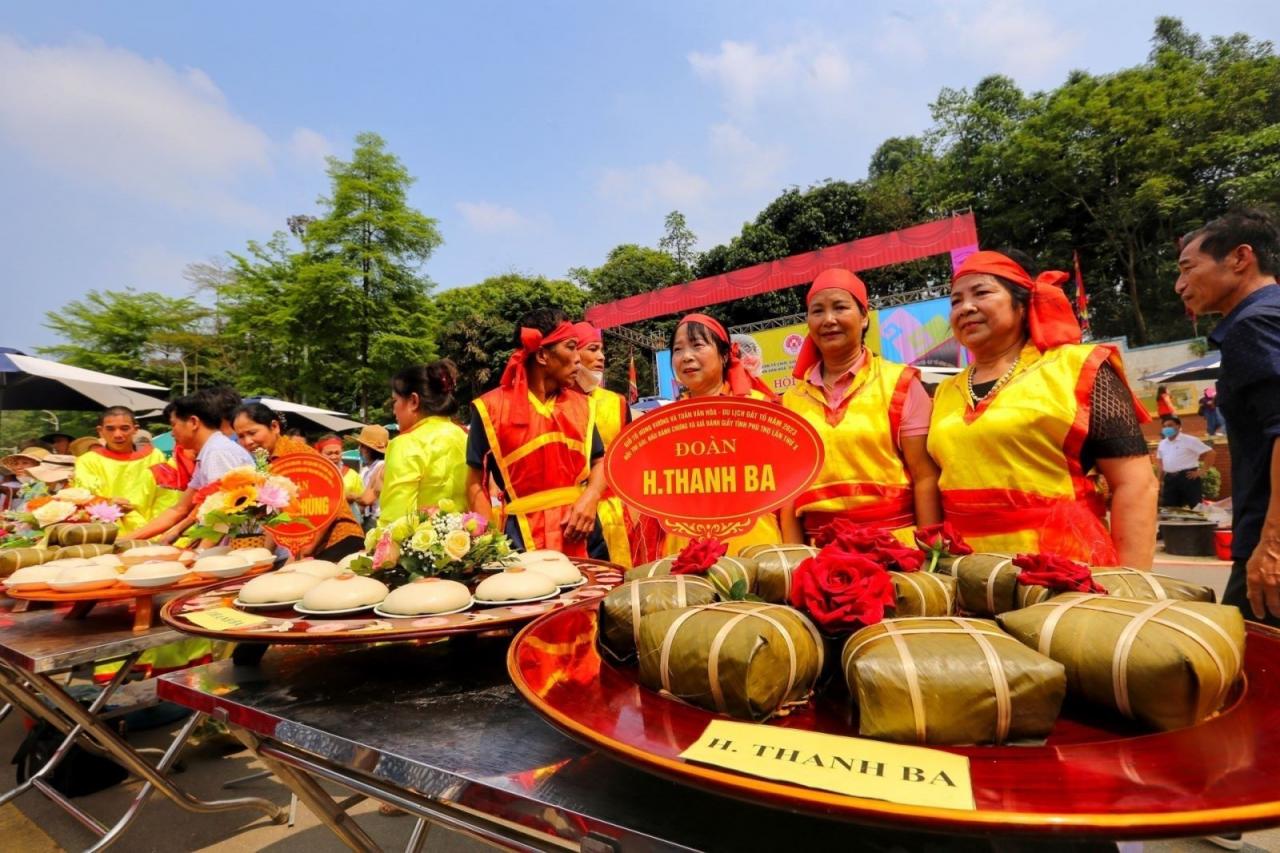
Today, on the S-shaped strip of land with 54 ethnic groups living together with different cultural characteristics but still sharing the same Ancestor - Hung Vuong. And this is the factor that unites the Vietnamese ethnic groups in the modern era, practicing the worship of Hung Vuong is recognized by the world as an outstanding value in the cultural life of the Vietnamese people.
The responsibility of our generation is to promote the spirit of solidarity and turn that spirit of turning back to the roots into an endogenous strength to overcome difficulties, preserve heritage, and remember the merits of our ancestors.
The more we are aware of the value of the past, the more we understand the spirit of great solidarity so that not only the 54 ethnic groups on the S-shaped strip of land feel the sense of compatriots, but also unite so that over 5 million Vietnamese people living in many different countries around the world all turn to their roots and feel the sacred value of the two words "compatriots".
Highlights of the procession to Hung Temple:
Article: Phuong Anh - Diep Ninh (synthesis) Photos, graphics: VNA; Video: Vnews Edited by: Hoang Linh Presented by: Ha Nguyen
April 29, 2023 05:55














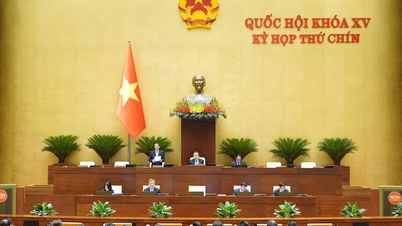
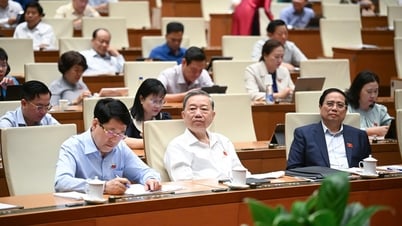

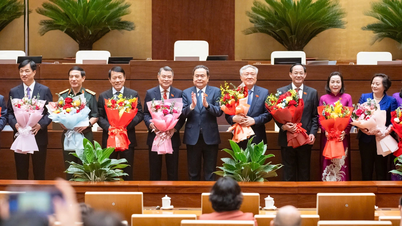







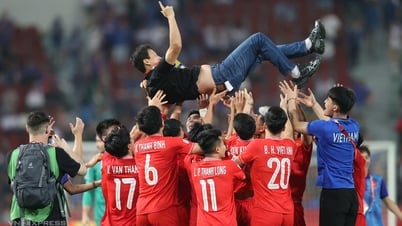
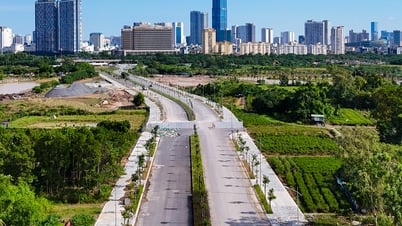

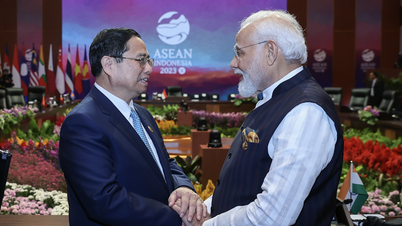
![[Photo] Worshiping the Tuyet Son statue - a nearly 400-year-old treasure at Keo Pagoda](/_next/image?url=https%3A%2F%2Fvphoto.vietnam.vn%2Fthumb%2F1200x675%2Fvietnam%2Fresource%2FIMAGE%2F2025%2F12%2F02%2F1764679323086_ndo_br_tempimageomw0hi-4884-jpg.webp&w=3840&q=75)
![[Photo] Parade to celebrate the 50th anniversary of Laos' National Day](/_next/image?url=https%3A%2F%2Fvphoto.vietnam.vn%2Fthumb%2F1200x675%2Fvietnam%2Fresource%2FIMAGE%2F2025%2F12%2F02%2F1764691918289_ndo_br_0-jpg.webp&w=3840&q=75)




































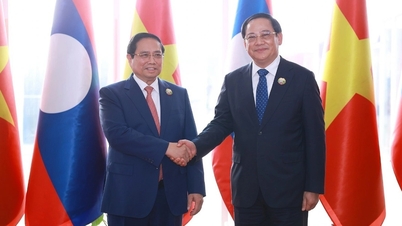














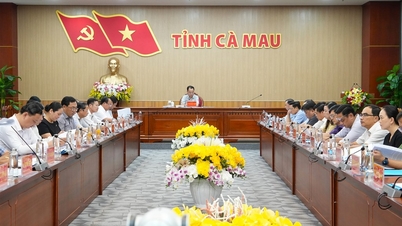

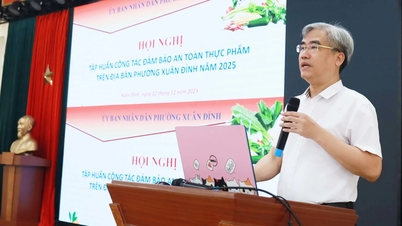
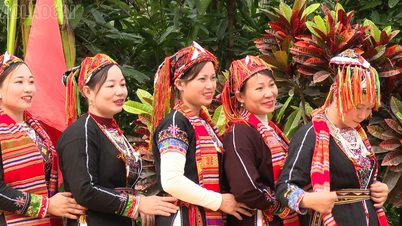

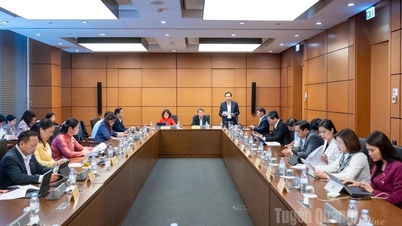

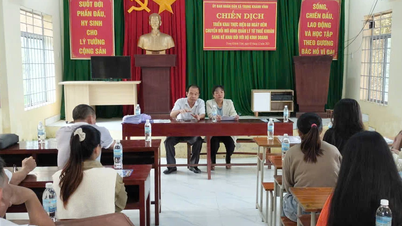














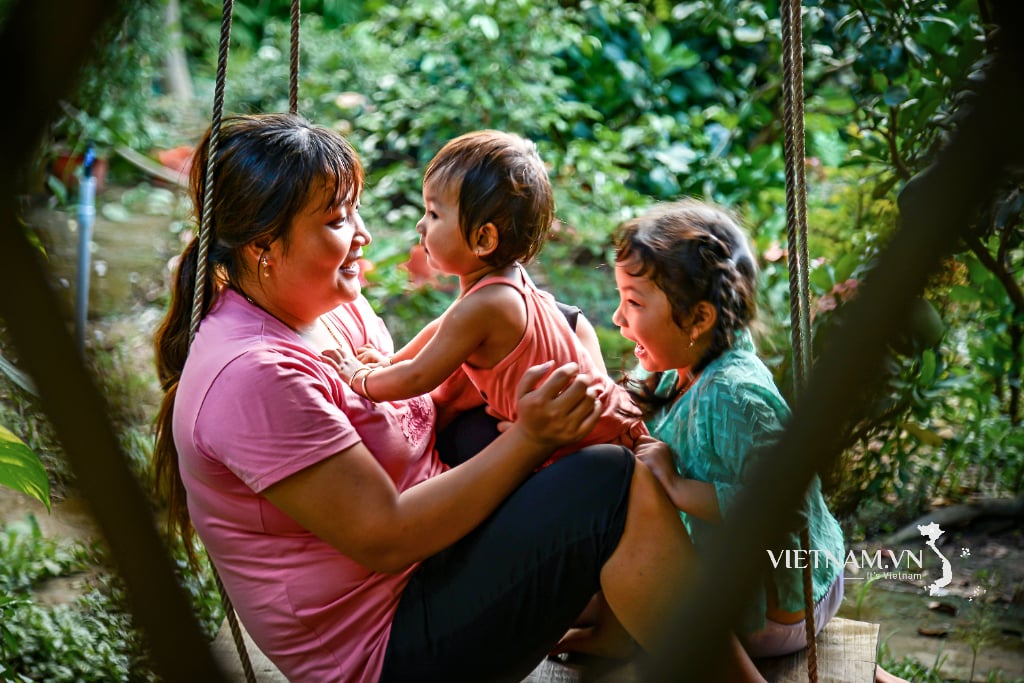
Comment (0)